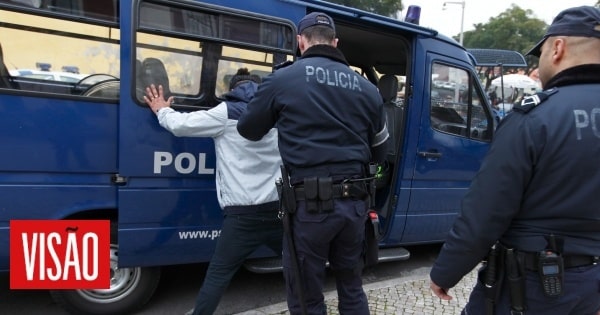Between 2018 and this year, there were 36 disciplinary proceedings and the application of sentences to GNR soldiers and PSP agents for racist, xenophobic and radical behavior or attitudes in the performance of functions or resulting from publications on social networks, according to data from the Ministry of Internal Administration (MAI), provided to VISÃO. At the moment, PSP and SEF have 18 pending cases.
This is one of the examples of the internal fight against those phenomena, but the contents disseminated on social networks by police and military from the PSP and GNR – following the investigations by VISÃO and the revelations by the Consortium of Investigative Journalists – are, in the words of the minister José Luís Carneiro, of “extreme gravity”. In view of this, the official ordered the IGAI to open a “priority” inquiry.
Manuel Magina da Silva, national director of the PSP, attests to VISÃO that internal practices are faithful to fundamental rights, “not agreeing with any type of extremism or radicalism”. Rui Clero, General Commander of the GNR, reinforces: “The practices of actions contrary to public morality, pride and decorum must be prevented, fought and denounced, especially the abusive and discriminatory ones.” This lieutenant general even calls for the “denouncement” of behaviors by the guards “that do not comply with the rights provided for in the constitution, contrary to the law and/or that constitute a violation of the deontological duties inherent to the military and police condition”.
the internal combat
But what do security forces do internally to deter criminal behavior of this nature?
In the case of the PSP, since 2020, the responsibility of police officers who, “intentionally or seriously or grossly, violate their legal obligations and the hierarchical instructions issued, namely with regard to the use of public force and statements produced in social networks”. That same year, Order 52/GDN/2020, of September 22, was approved and published, which imposes the removal of tattoos of a racist nature or that encourage hatred and violence. Within the scope of the training programs in force at the Higher Institute of Police Sciences and Internal Security, “the theme of Human Rights assumes a transversal character throughout the entire study plan of initial training”.
In addition, the PSP has plans to combat racism and discrimination and a partnership with the High Commission for Migration. The GNR also complies with a plan to prevent manifestations of discrimination in the security forces and services and, this year alone, it has already developed 875 awareness actions, aimed at more than 30,000 students, in addition to the 441 actions within the scope of the International Day of Struggle against Racial Discrimination, aimed at more than ten thousand students. Internally, the dissemination of GNR activities favors the publication of images and videos featuring women and/or soldiers belonging to minorities based on their ethnic-racial/social origin. The internal management of the units’ social media pages emphasizes that “publications must be impartial and not contain any interactions or references that may offend the sensibilities of third parties, namely, racial, xenophobic or religious political issues, among others; and should also hide racist, xenophobic comments, among others”. In addition to this, the Commission for Gender Equality and Non-Discrimination in Guarda (CIGUARDA) was created and a Human Rights Officer appointed.

